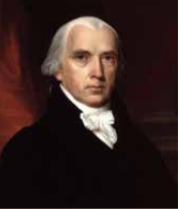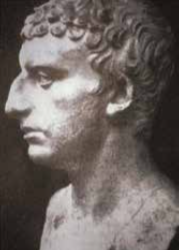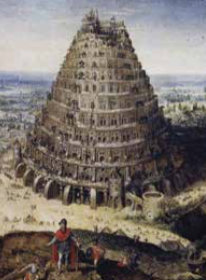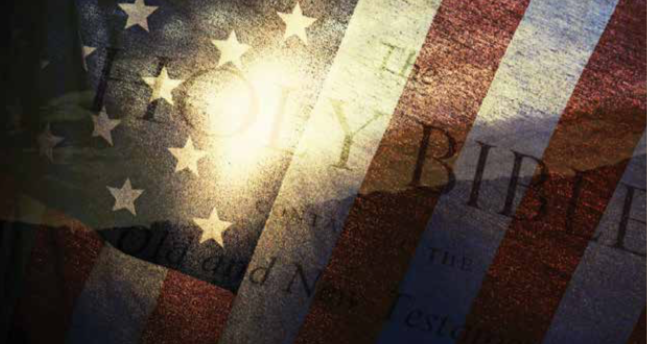Part One: The Biblical Purpose of Government
Chapter 4: Tyranny — Satan’s Perversion
Satan’s Lies About Civil Government
 In John 8:31-59 Jesus states that His Word enables men to “know the truth,
and the truth shall make you free.” Those of God accept and speak His truth
(v. 40) and rule according to His will (v. 42); those of Satan accept and speak his
lies (v. 44) while rejecting those who rule according to God’s will (vv. 40-44).
As the father of lies (v. 44), Satan perverts God’s truth in every way he can,
including in civil government. This satanic perversion of God’s design for civil
government will be referred to as tyranny throughout this discussion and is
defined as organized force posing as civil government that seeks its own will in
rebellion against God (Psalm 2:1-3). It is based on the lies that sovereign law
originates from the government and governing authority is derived from might
alone (Daniel 4:30).
In John 8:31-59 Jesus states that His Word enables men to “know the truth,
and the truth shall make you free.” Those of God accept and speak His truth
(v. 40) and rule according to His will (v. 42); those of Satan accept and speak his
lies (v. 44) while rejecting those who rule according to God’s will (vv. 40-44).
As the father of lies (v. 44), Satan perverts God’s truth in every way he can,
including in civil government. This satanic perversion of God’s design for civil
government will be referred to as tyranny throughout this discussion and is
defined as organized force posing as civil government that seeks its own will in
rebellion against God (Psalm 2:1-3). It is based on the lies that sovereign law
originates from the government and governing authority is derived from might
alone (Daniel 4:30).
Origin
The seeds of tyranny were sown in Satan’s first lie (Genesis 3:1-5): “Ye shall not surely die.” By rejecting God’s law of liberty (rights-responsibilities), he claimed that man can “be as gods, knowing good and evil.” This is why a fundamental belief in God is the leading idea that permeates the entire philosophy of Biblical civil government and is what makes its cause so sacred. It originated from God’s desire to protect liberty from the destructiveness of Satan’s lie. On the other hand, as explained by C. F. Bastiat, proponents of tyranny say: “We have but little faith in Providence, for we see that the natural laws lead to an abyss … We pretend to believe in God, but in reality we believe only in ourselves … we hold our social plans as infinitely superior to the plans of Providence.”[9] 9. C. F. Bastiat, The Bastiat Collection, 2nd ed. (Auburn, Alabama: Ludwig von Mises Institute, 2011), 961.
They believe that by rejecting the authority and wisdom of God’s design, they can create a paradise of their own that is better than what God has created. John Lennon popularized Satan’s lie through his song “Imagine,” which dreams of a future Godless utopia: “Imagine there’s no heaven; it’s easy if you try. No hell below us, above us only sky. Imagine all the people living for today. Imagine there’s no countries; it isn’t hard to do—nothing to kill or die for, and no religion too.” John Lennon later said his song was “virtually the Communist Manifesto.”[10] 10. Lisa Fabrizio, “Imagine That,” The American Spectator, September 19, 2007, http://spectator.org. William Penn observed the inescapable choice that all men have faced since the fall: “Those who will not be governed by God will be ruled by tyrants.”[11] 11. This quotation has been attributed to William Penn, although not found in any of his writings.

| The accumulation of all powers, legislative, executive, and judiciary in the same hands, whether of one, a few, or many, and whether hereditary, self-appointed, or elective, may justly be pronounced the very definition of Tyranny. - James Madison (Federalist 47) |
The 1599 edition of the Geneva Bible commentary notes (King James replaced this version with his 1611 Authorized Version because its wording was critical of tyrannical kings and threatened his belief in the “divine right of kings” theory) offer some interesting insights that expose the earliest appearances of tyranny in history. In regard to the pre-Flood world (Genesis 6:4) the Geneva Bible reads, “There were giants [or tyrants] in the earth in those days … these were mighty men, which in old time were men of renown [which usurped authority over others, and did degenerate from that simplicity, wherein their fathers lived].” The rise of the first great tyrant, Nimrod, is described in Genesis 10:8-9: “And Cush begat Nimrod, who began to be mighty in the earth [meaning, a cruel oppressor and tyrant]. He was a mighty hunter before the Lord, wherefore it is said, as Nimrod the mighty hunter before the Lord. [His tyranny came into a proverb as hated both of God and man: for he passed not to commit cruelty even in God’s presence].” The Geneva Bible goes on to explain that the builders of the Tower of Babel (Genesis 11:4) “were moved with pride and ambition, thinking to prefer their own glory to God’s honor.”[12] 12. Scriptures in this paragraph are quoted from the 1599 Geneva Bible. Phrases in brackets within the verses are from the Geneva Bible commentary/study notes.
The name Nimrod comes from the Hebrew verb marad meaning “to rebel” or “we will revolt.” This may not be his actual name but a derisive term, since some scholars believe he may have been the king of Uruk, Gilgamesh. The tyrannical and rebellious nature of his empire is indicated by the phrase describing him as a “mighty hunter before the Lord” (Genesis 10:9), which means “in opposition or defiance of the Lord.” Ancient writers said that Nimrod used his tyrannical power to institute pagan worship, idolatry, and the worship of fire.[13] 13. For more information, see The Two Babylons by Alexander Hislop and Babylon Mystery Religion by Ralph Woodrow.
First-century historian Titus Flavius Josephus writes of Nimrod’s reign in his Antiquities of the Jews:
| Now the plain in which they first dwelt was called Shinar. God also commanded them to send colonies abroad, for the thorough peopling of the earth, that they might not raise seditions among themselves, but might cultivate a great part of the earth, and enjoy its fruits after a plentiful manner … but they, imagining the prosperity they enjoyed was not derived from the favor of God, but supposing that their own power was the proper cause of the plentiful condition they were in, did not obey him … . Now it was Nimrod who excited them to such an affront and contempt of God. He was the grandson of Ham, the son of Noah, a bold man, and of great strength of hand. | 
|
He persuaded them not to ascribe it to God as if it was through his means they were happy, but to believe that it was their own courage which procured that happiness. He also gradually changed the government into tyranny, seeing no other way of turning men from the fear of God, but to bring them into a constant dependence upon his power. He also said he would be revenged on God, if He should have a mind to drown the world again; for that he would build a tower too high for the waters to be able to reach! And that he would avenge himself on God for destroying their forefathers!
According to Josephus’ account, Nimrod not only acted according to Satan’s first lie, but also led his people into believing it to the point where they attempted to overthrow God’s power of coercive justice.
Ordination
Jesus warned of the tares (the children of the wicked one) that the devil plants in order to destroy and corrupt the harvest of the children of the kingdom of God (Matthew 13:24-30, 36-43). One of the types of tares he uses is tyrannical government. Satan tries to deceive rulers into thinking that he, not God, is the source of all political power and can give it to whomever he wishes (Luke 4:5-7). This lie then gives tyrants the confidence to claim that civil government is by the king and for the king with no accountability to God (Exodus 5-12, Daniel 4:30). Governments that rebel against the sovereignty of God are established through the authority of idols and other idolatrous governments (Hosea 8:1-4).
Operation
Because he is evil (John 8:44), Satan has “ordained” tyranny to be his “minister” for three perversions: (1) to facilitate the destruction of society in order to establish a “new” society; (2) to secure the freedom and prosperity of those who live according to his lies; (3) and to punish good.
Two Biblical examples of tyrannies facilitating the destruction of the
existing social order in order to establish a new society are the “kings of the
Gentiles”—described in Luke 22:25 as manipulating society
 in order to set up a
system where they are viewed as the providers of the people’s needs—and the
beast from the earth (Revelation 13:16-17), who destroys the old economic system
in order to establish one in which only those bearing the “mark of the beast”
will be able to buy or sell. C. F. Bastiat observed that the efforts of tyrants
to regulate and reshape society are often an act of war on God’s design: “The
Socialists have set out in quest of an artificial organization only because they
judge the natural organization of society bad or insufficient,” and “if mankind
is indeed urged on by the laws of value toward injustice; by the laws of rent
toward inequality; by the laws of population toward poverty; by the laws of
inheritance toward sterility—we can no longer affirm that God has made the moral
as He has made the natural world—a harmonious work; we must bow the head, and
confess that it has pleased Him to base it on revolting and irremediable
dissonance.” Jean-Jacques Rousseau pointed out that such planners are not only
rebelling against God, they are in fact seeking to become gods themselves: “Gods
would be necessary in order to give laws to men … . He who dares to found a
nation must feel himself in a condition to change human nature … to alter the
constitution of man in order to strengthen it.” Karl Marx wrote of his desire to
destroy the existing social order and then “stride through the wreckage a
creator.” Plato captured the social planner’s utopian city in his work The
Republic (380 B.C.), in which all human ills are disposed of by proper
management.
in order to set up a
system where they are viewed as the providers of the people’s needs—and the
beast from the earth (Revelation 13:16-17), who destroys the old economic system
in order to establish one in which only those bearing the “mark of the beast”
will be able to buy or sell. C. F. Bastiat observed that the efforts of tyrants
to regulate and reshape society are often an act of war on God’s design: “The
Socialists have set out in quest of an artificial organization only because they
judge the natural organization of society bad or insufficient,” and “if mankind
is indeed urged on by the laws of value toward injustice; by the laws of rent
toward inequality; by the laws of population toward poverty; by the laws of
inheritance toward sterility—we can no longer affirm that God has made the moral
as He has made the natural world—a harmonious work; we must bow the head, and
confess that it has pleased Him to base it on revolting and irremediable
dissonance.” Jean-Jacques Rousseau pointed out that such planners are not only
rebelling against God, they are in fact seeking to become gods themselves: “Gods
would be necessary in order to give laws to men … . He who dares to found a
nation must feel himself in a condition to change human nature … to alter the
constitution of man in order to strengthen it.” Karl Marx wrote of his desire to
destroy the existing social order and then “stride through the wreckage a
creator.” Plato captured the social planner’s utopian city in his work The
Republic (380 B.C.), in which all human ills are disposed of by proper
management.
An example of tyrannical government securing the freedom and prosperity of those who live wickedly is seen in the release of Barabbas, the murderer, while Christ was chosen for crucifixion (Mark 15:6-15). Proverbs 24:24 speaks of the negative impact that justifying wickedness has on a nation. The New Testament is full of examples of governments punishing good, beginning with the unjust sentencing of Christ to the cross (Mark 15:14– 15) and continuing with the repeated persecutions of the early Christians (see the book of Acts and the epistles) who declared: “We must obey God rather than men” (Acts 5:29).

Summary
In this chapter we learned that tyranny is (1) a consequence of the fall; (2) Satan’s lie—it rejects accountability and submission to God (Psalm 2); (3) a negative force in a fallen world (Psalm 94:16-20; Proverbs 8:13; Proverbs 24:24-25); and (4) a minister of Satan’s lies in order to glorify himself and destroy our ability to serve God and enjoy His blessings.
Tyranny claims that God’s design is flawed and needs correction. However, the Bible teaches that in His social laws of responsibility and coercive justice God has displayed goodness, simplicity, and splendor just as amazing as the harmonies observed in the laws of science. Since the Fall has marred God’s creation, He has provided the perfect remedy in the King of kings—Jesus Christ. All civil governments receive their sovereignty from Him, and to the extent that they rule according to His nature, they act as His ministers in restoring God’s order to society.
↩ 9. C. F. Bastiat, The Bastiat Collection, 2nd ed. (Auburn, Alabama: Ludwig von Mises Institute, 2011), 961.
↩ 10. Lisa Fabrizio, “Imagine That,” The American Spectator, September 19, 2007, http://spectator.org.
↩ 11. This quotation has been attributed to William Penn, although not found in any of his writings.
↩ 12. Scriptures in this paragraph are quoted from the 1599 Geneva Bible. Phrases in brackets within the verses are from the Geneva Bible commentary/study notes.
↩ 13. For more information, see The Two Babylons by Alexander Hislop and Babylon Mystery Religion by Ralph Woodrow.